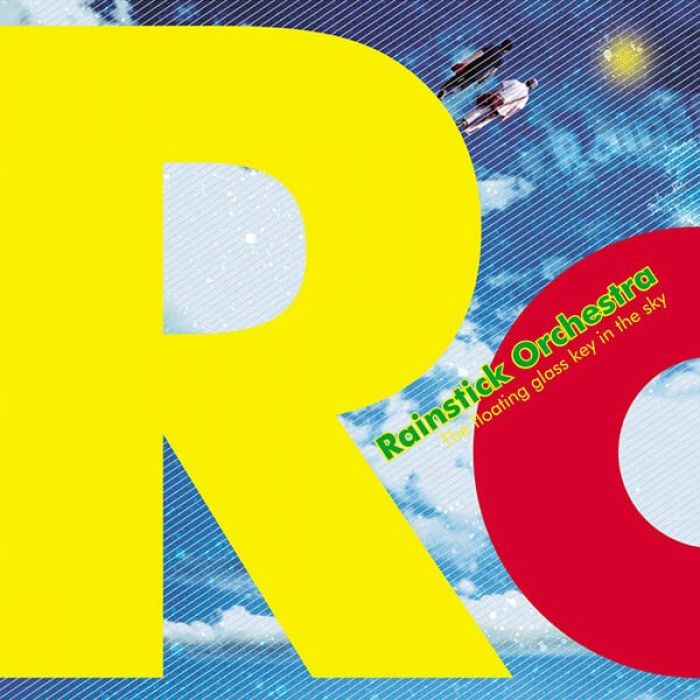The Floating Glass Key in the Sky by Rainstick Orchestra (Review)

Rainstick Orchestra is Baku Tsunoda and Naomichi Tanaka, two Tokyo twentysomethings who met while DJing at the same club. Interestingly enough, their daytime jobs are fairly far removed from music: Tsunoda works as an editorial designer and Tanaka is a systems engineer. However, that doesn’t seem to impact the skill and precision with which they craft their music. If anything, that only adds to it.
Like Röyksopp, Rainstick Orchestra’s music is so clean and precise that it almost seems as if it was produced on an assembly line. Each component is planned and laid out with the utmost of care, which is both the disc’s greatest strength and liability.
For example, the disc’s opening track, “Trick,” is an absolutely gorgeous production, fill of plucked strings, satellite pulses, and shuffling rhythms that contain the barest hint of glitch. Reminiscent of Lars Horntveth, it’s a track that glides by effortlessly on the sort of precision engineering one might expect to emerge from the Land of the Rising Sun.
Unfortunately, the first track represents the disc’s zenith, and the rest of the tracks, no matter how good they are, suffer by comparison in some way. “Waltz for a Little Bird” takes on a slightly jazzier strut, the brushed drums taking a Sunday stroll alongside rolling pianos and muted synths. Trilling little flutes flit through “Kiteletu“ ‘s Tortoise-y soundscapes (think TNT rather than Standards), and even comes complete with some cowbell.
“Powderly” is the album’s weakest track — not because it’s bad but simply because it does the least with what it’s got. And to be honest, that charge could probably be laid against much of The Floating Glass Key in the Sky. Far too often, Tsunoda and Tanaka simply seem to program their tracks, plan out all of the sequences, and just let them run for some pre-alloted time in a sterile environment before pressing “Stop.” As with many of the tracks, a lot does go on within “Powderly” — strings, all manner of percussion (including handclaps and chimes), vocal samples, etc. — but everything just spirals around each other, going in circles while going nowhere.
This sort of circular, repetitive music owes an obvious debt, for better or worse, to Steve Reich, and the duo repay the debt by covering Reich’s “Electric Counterpoint.” Or at least they attempt to, blending electronic pulses and acoustic guitars in a multilayered lattice. And to be expected, it sure sounds pretty — for the first 2 or 3 minutes.
The album’s closing track, the aptly-titled “A Closed Circuit,” actually fares a bit better, not because it does anything differently, but because it does everything for a longer time. Strangely enough, the track, which runs for 10 minutes or so, actually finds the duo’s music becoming rather hypnotic and lulling when spread out more, and not nearly so boring and dull as one might expect.
This disc ultimately makes for great aural wallpaper — great to have on while you’re, oh, say trudging through layers of HTML and CSS past midnight — and not much else. If you listen closer, hoping you’ll find more detail and nuance, you’ll probably find the disc doesn’t hold up quite so well under the added scrutiny. For all of the duo’s planning and precision, Rainstick Orchestra’s music doesn’t quite come together in a way that ultimately satisfies.